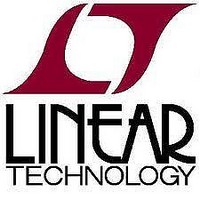lt3467aes67 Linear Technology Corporation, lt3467aes67 Datasheet - Page 8

lt3467aes67
Manufacturer Part Number
lt3467aes67
Description
1.1a Step-up Dc/dc Converter With Integrated Soft-start
Manufacturer
Linear Technology Corporation
Datasheet
1.LT3467AES67.pdf
(16 pages)
APPLICATIONS
LT3467/LT3467A
8
CAPACITOR SELECTION
Low ESR (equivalent series resistance) capacitors should
be used at the output to minimize the output ripple voltage.
Multi-layer ceramic capacitors are an excellent choice, as
they have extremely low ESR and are available in very
small packages. X5R dielectrics are preferred, followed by
X7R, as these materials retain the capacitance over wide
voltage and temperature ranges. A 4.7μF to 15μF output
capacitor is sufficient for most applications, but systems
with very low output currents may need only a 1μF or 2.2μF
output capacitor. Solid tantalum or OSCON capacitors can
be used, but they will occupy more board area than a
ceramic and will have a higher ESR. Always use a capacitor
with a sufficient voltage rating.
Ceramic capacitors also make a good choice for the input
decoupling capacitor, which should be placed as close as
possible to the LT3467. A 1μF to 4.7μF input capacitor is
sufficient for most applications. Table 2 shows a list of
several ceramic capacitor manufacturers. Consult the
manufacturers for detailed information on their entire
selection of ceramic parts.
Table 2. Ceramic Capacitor Manufacturers
Taiyo Yuden
AVX
Murata
The decision to use either low ESR (ceramic) capacitors or
the higher ESR (tantalum or OSCON) capacitors can affect
the stability of the overall system. The ESR of any capaci-
tor, along with the capacitance itself, contributes a zero to
the system. For the tantalum and OSCON capacitors, this
zero is located at a lower frequency due to the higher value
of the ESR, while the zero of a ceramic capacitor is at a
much higher frequency and can generally be ignored.
(408) 573-4150
(803) 448-9411
(714) 852-2001
U
INFORMATION
U
W
www.t-yuden.com
www.avxcorp.com
www.murata.com
U
A phase lead zero can be intentionally introduced by
placing a capacitor (C4) in parallel with the resistor (R1)
between V
of the zero is determined by the following equation.
By choosing the appropriate values for the resistor and
capacitor, the zero frequency can be designed to improve
the phase margin of the overall converter. The typical
target value for the zero frequency is between 35kHz to
55kHz. Figure 3 shows the transient response of the step-
up converter from Figure 8 without the phase lead capaci-
tor C4. Although adequate for many applications, phase
margin is not ideal as evidenced by 2-3 “bumps” in both
the output voltage and inductor current. A 22pF capacitor
for C4 results in ideal phase margin, which is revealed in
Figure 4 as a more damped response and less overshoot.
DIODE SELECTION
A Schottky diode is recommended for use with the LT3467
and the LT3467A. The Philips PMEG 2005 is a very good
choice. Where the switch voltage exceeds 20V, use the
PMEG 3005 (a 30V diode). Where the switch voltage
exceeds 30V, use the PMEG 4005 (a 40V diode). These
diodes are rated to handle an average forward current of
0.5A. In applications where the average forward current of
the diode exceeds 0.5A, a Philips PMEG 2010 rated at 1A
is recommended. For higher efficiency, use a diode with
better thermal characteristics such as the On Semicon-
ductor MBRM120 (a 20V diode) or the MBRM140 (a 40V
diode).
ƒ =
Z
2
OUT
π •
R C
and V
1
1
•
FB
4
as shown in Figure 2. The frequency
3467afc











